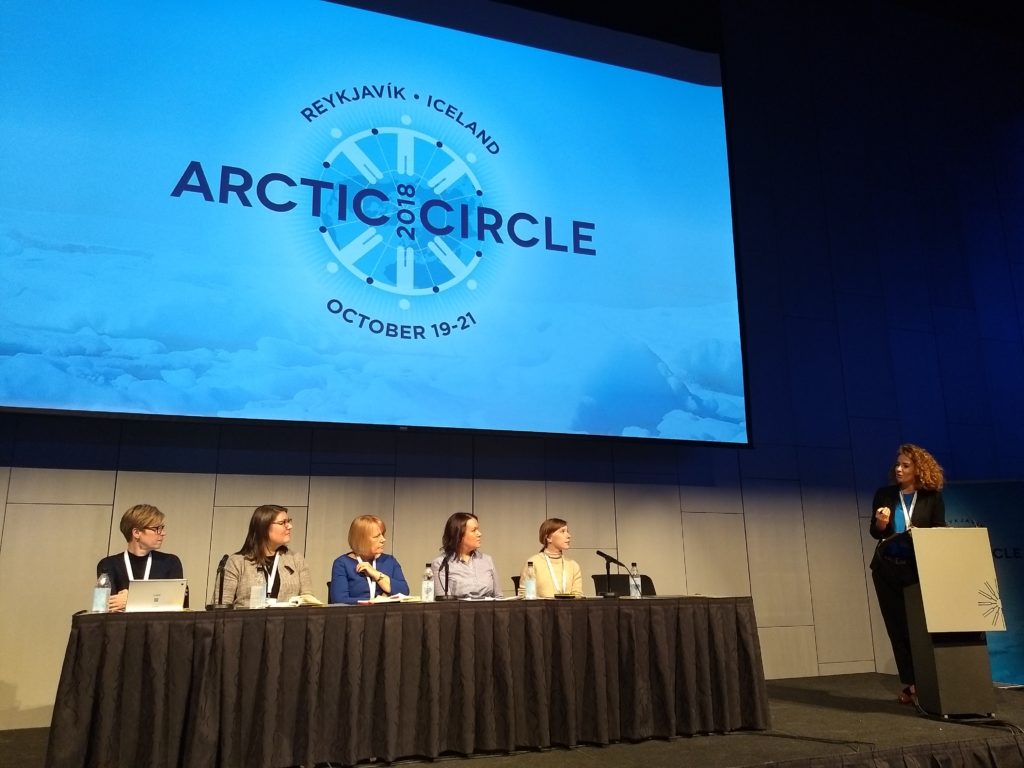Women of the Arctic is now a nonprofit focused on gender issues
The creators of a new nonprofit focused on gender in the Arctic say that women's issues affect the entire community — and should be taken more seriously.

A new organization devoted to bringing more focus to gender issues in the Arctic has taken a step closer to securing its future.
Last month, researchers Tahnee Prior and Gosia Smieszek announced that the organization, Women of the Arctic, was officially registered as a nonprofit organization.
Soon after, they began rolling out a video series of more than 100 interviews with women from across the region: women in science, tech, engineering and math; women in policymaking, business and law; women in the arts and exploration.
Plan A. Gender is not Plan B in the Arctic. from What Took You So Long? on Vimeo.
Although the idea of focusing on women’s issues began germinating between the two Arctic researchers when they first met years ago, it began gathering momentum in September 2018 when Prior and Smieszek organized an event focused on women at the University of the Arctic Congress in Helsinki.
They brought together women from all across the Arctic, “which is key in all of this,” Prior said at Arctic Circle Assembly in Reykjavik a few months later.
At that Arctic Circle panel, Prior called for an Arctic Women’s Summit to address the many issues facing women that many discussions of Arctic issues often overlook: maternal and reproductive health, gender-based violence, pay gaps, human trafficking, education, caregiving, and much more.
“You don’t hear these things at Arctic Frontiers or Arctic Circle or any of these conferences. It’s all shipping and geopolitics,” Prior told ArcticToday. Yet women’s issues affect the entire community, she said.
“These communities are so small that if you leave anybody behind, it has a huge impact on everybody else,” she said. “So they’re actually community issues.”
For instance, most of the women, from Alaska to Russia, who spoke with Prior and Smieszek said that their boys’ futures are one of their biggest concerns.
“A lot of the men have lost — partly because of climate change, partly because of colonization — a lot of their original, traditional roles, and have been given no support to figure out what alternatives are out there,” Prior explained.
Gender inequity and the subsequent problems it brings happen everywhere, she said. “But in the remote North, it’s more pronounced, especially given climate change and given the shortage of food and housing.”
While some Arctic countries have done better overall in addressing women’s issues, Prior said, “that doesn’t necessarily mean that they have it all figured out.”
“You still see high levels of intimate partner violence in northern Finland, northern Norway, and northern Sweden. There’s still a pay gap in Iceland, and there’s only one women’s shelter there — and it’s underfunded.”
The primary goal of the new Women of the Arctic nonprofit is to partner with other organizations to bring gender issues in the Arctic to the forefront of the conversation.
Prior and Smieszek are still planning a Women’s Arctic Summit, including putting together an advisory board. “Next year would be ideal,” Prior said.
But those unable to attend the emerging discussions around gender at international conferences may also follow the conversation online, at the Gender Is Not Plan B website — especially the scores of video interviews with circumpolar women — and on social media with the hashtag #WomenoftheArctic.
That way, Prior said, “people can make the connections themselves” on gender issues in the Arctic — no matter where they are.